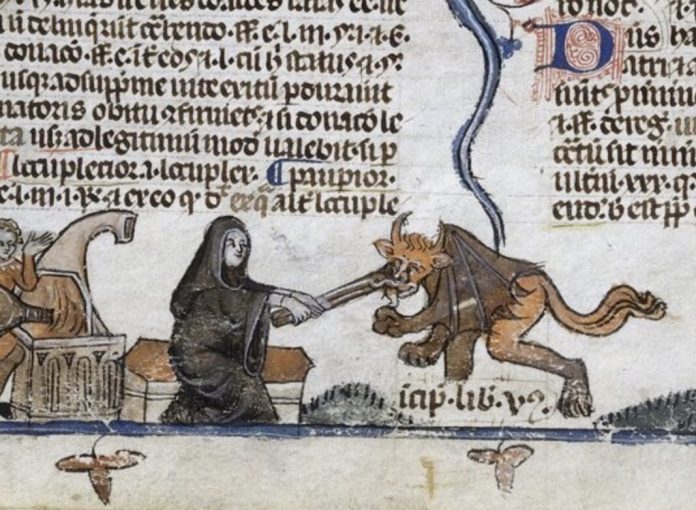
History invariably provides us with lessons from which we can learn. Politicians tend to dislike such lessons and generally fall into the trap identified first (though oft-quoted) by philosopher, essayist and poet George Santayana: “those who cannot remember history are doomed to repeat it.” Sadly, the current pandemic is, we’re assured, “unprecedented”: so we’re hard-put to level that particular criticism at our leaders currently blundering through the national response.
Northumberland’s history intrudes so obviously into its landscape and views that we’re hard-put to ignore it. From our kitchen, for example, we look up to the ancient hill-forts on the hill that from the northern edge of the Cheviots. Drive any distance (now we’re allowed to) and we pass bastles (mostly ruinous) and ancient churches: climb any significant hill, and we can count the spectacular castles that line the coast.
An English saint for our time
A post on Twitter informs me that today is the feast day of Saint Dunstan. That quintessentially English [sic] saint, who died on 19th May 988, was a West-Country boy: his first senior church appointment was that of Abbot of Glastonbury, near where I grew up (that was long before it started to attract hippies, weirdos, druggies and the people who nowadays wander its streets dressed as Gandalf).
Dunstan’s chosen trade as jeweller and blacksmith (he’s patron saint of the latter craft) gave rise to the legend about his being tempted by the devil. He gave Lucifer short shrift and tweaked his nose with his hot tongs: the picture above, an illumination from a medieval manuscript, surely furnishes us, during lockdown, with an invaluable technique for social distancing. I intend to equip myself with a pair of two-metre tongs as soon as I can.

Reviving old wrecks (1)
I’ve just been reminded of another, much more recent, kind of history. The received wisdom that farmers are reluctant to throw anything out was demonstrated in Milfield the other day, when the aged Fordson tractor pictured appeared at Armstrong’s farm.
It’s the tractor that Tom Armstrong first drove, according to his son Richard, who has a theory that farmers just cannot get rid of the machine they learnt on. Indeed, he says his dad last restored this one thirty years ago, though it’s spent a decade or two buried in a barn somewhere.
Time for Tom to get it back into working order again, then: and then sons Richard and Tom should set to work on the old, grey (1950s’? paraffin-fuelled?) Ferguson that I spot still in use in their fields from time to time.
Then, when summer agricultural shows are back on the menu again, they can join that inevitable cavalcade of farmers of a certain age who can’t resist taking their old, their first, loves – tractors, I mean – to show off, following behind the parade of livestock. Come on: you’ve been there, too. You know they do.

Reviving old wrecks (2)
Talking of old wrecks being brought back to working order, I guess any regular peruser of Voice of the North will be wondering what Banksy’s been up to this week. Never fear: he assures me that you can read the next highly-embellished account of his uneventful week in a matter of days.

Stop Press: no sense of taste
Latest symptom identified as an indicator of Covid-19: you must self-isolate if you have no sense of taste. Tweeter Sam Freedman, whose picture of his kids in locked-down home-school I borrowed the other week, is worried: “I’m nervously looking at my wardrobe and wondering if I’ll ever be able to go outside again.”
Among the more cutting responses came this: “I think it only counts if you had taste before.”
Ouch!


